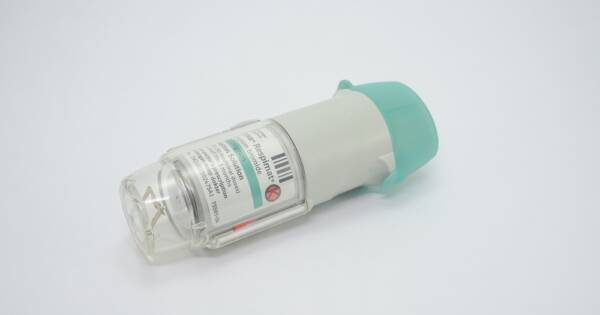Nonalcoholic steatohepatitis (NASH) stands as a pressing global health issue, evolving from nonalcoholic fatty liver disease and affecting millions worldwide, particularly those with obesity and Type 2 diabetes. Exploring the impact of dietary changes, physical activity, medications, and lifestyle modifications provides a holistic approach to managing this condition. Insights into these strategies can equip individuals with practical tools to enhance liver health and navigate the complexities of NASH effectively.
Understanding Nonalcoholic Steatohepatitis (NASH)
Nonalcoholic steatohepatitis (NASH) represents a severe form of liver deterioration originally stemming from nonalcoholic fatty liver disease (NAFLD). Characterized by excessive liver fat accumulation and inflammation, NASH can lead to liver fibrosis or cirrhosis, conditions notably severe and potentially life-threatening. This condition impacts millions worldwide and is especially prevalent among individuals who are obese or have Type 2 diabetes based on current research.
Despite its strong correlation with alcohol-like liver damage, NASH occurs in individuals who consume little or no alcohol. Concerning demographics, approximately 25% of adults in the United States have NAFLD, and a significant portion progresses to NASH. Fortunately, understanding the factors contributing to NASH offers pathways to effective management, emphasizing weight control through diet and exercise alongside monitoring other health conditions.
Role of Diet in NASH Management
Dietary adjustments form the cornerstone of managing nonalcoholic steatohepatitis. Some dietary strategies include fostering weight loss and improving overall liver health. A reduction in body weight by 7% to 10% significantly improves liver inflammation and fibrosis. Embracing a Mediterranean diet, which is inherently rich in fruits, vegetables, and whole grains while low in saturated fats, carries substantial benefits. It helps reduce liver fat and inflammation.
Decreasing sugar intake, particularly from sweetened beverages, also lessens risks associated with fatty liver disease and optimizes overall liver condition. Both researchers and healthcare providers advocate for careful dietary planning. Individuals often achieve significant health improvements by working with nutritionists and incorporating tailored meal planning, highlighting the importance of a personalized approach.
The Impact of Physical Activity
Physical activity plays an integral part in treating NASH. While weight loss is important, even without losing weight, regular exercise is beneficial. Activities such as walking, jogging, and gardening improve health markers and contribute positively to liver health as evidenced in recent findings. Engaging in at least 30 minutes of physical activity most days of the week helps control weight and boosts general health.
Such a regimen not only aids in calorie expenditure but also increases sensitivity to insulin, thereby helping manage blood sugar levels effectively. Moreover, physical activity influences mood and energy levels positively, further supporting healthcare strategies aimed at comprehensive lifestyle management.
The Role of Medications and Vitamins
The landscape of medication for treating NASH has evolved, especially with the recent FDA approval of resmetirom (Rezdiffra™). This medication specifically targets individuals with moderate to advanced liver fibrosis, operating through a thyroid hormone pathway. By increasing metabolism of liver fat, resmetirom aims to alleviate liver scarring according to clinical reports.
Interestingly, Vitamin E is gaining attention for potentially reducing liver fat and inflammation in NASH patients. However, while it offers some benefits, it might not significantly impact fibrosis, requiring patients to consult with healthcare providers about possible advantages and associated risks before use. The integration of multi-disciplinary care teams also proves critical, involving specialists from various medical fields to manage NASH intricacies comprehensively.
Protecting Liver Health Through Lifestyle Changes
Protecting liver health involves comprehensive lifestyle adjustments. Crucially, this includes abstaining from alcohol, managing medications appropriately, and considering vaccinations for conditions like hepatitis A and B that can further stress the liver. Additionally, emerging research supports moderate coffee consumption, noting potential liver fibrosis risk reduction when consuming more than two cups a day for those with liver disease based on recent studies.
Moreover, individuals must actively manage other health conditions like diabetes and high cholesterol, monitoring blood sugar levels, and reducing saturated fat intake. These actions play a significant role in a comprehensive management plan aimed at mitigating the progression or onset of NASH.
Why You Should Learn More About Liver Conditions Today
Understanding and managing NASH requires insight into both the condition itself and the broader context of liver health. As healthcare evolves, more individuals face NASH and related liver conditions, driven by lifestyle factors and other medical conditions like diabetes. Leveraging knowledge about diet and physical activity, staying informed about emerging medications, and actively engaging with healthcare professionals yield proactive steps towards better liver health.
In sum, knowledge empowers individuals, caregivers, and healthcare professionals to better navigate the complexities of liver conditions and implement effective management plans customized for each patient’s unique needs. Embracing scientific developments and lifestyle recommendations fosters a comprehensive, informed approach in battling NASH and enhancing overall liver health.




